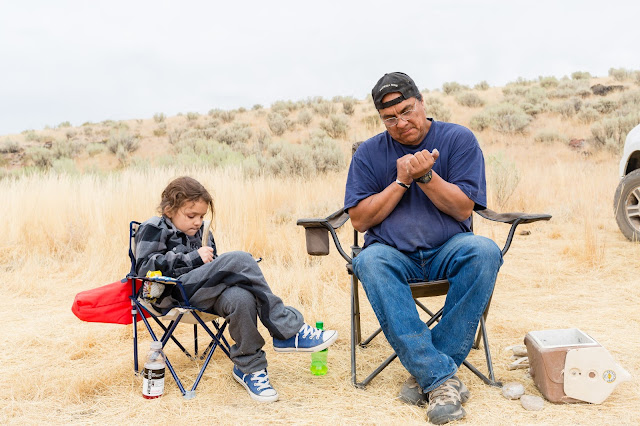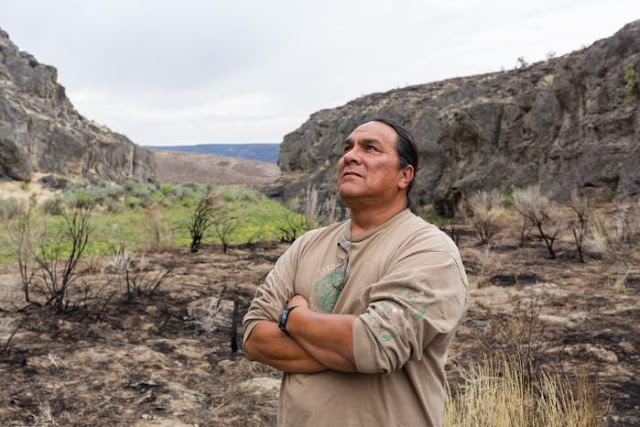Flintknapping as a Cultural and Spiritual Journey

This article appeared in Indian Country magazine in 2017. For more on topics like this, see my book, American Apartheid: The Native American Struggle.... A Western Shoshone grandfather and grandson sit companionably, side by side, in canvas camp chairs. They are in a small valley buttressed by rolling hills covered with golden grasses and gray-green sagebrush. In the palm of the left hand, each holds a piece of rough black stone resting on a small leather pad and, in the right, a length of deer antler. More tribal members are camped around them, watching the pair work, chatting, cooking and preparing a sweat lodge. A jackrabbit hops by: “Breakfast,” someone says. Mule deer dash away toward distant mountains. The valley is in the Tosawihi Complex, a dry, rugged landscape that covers scores of square miles in what is now northern Nevada. It is the heart of the traditional Western Shoshone homeland, where they have camped, hunted, gathered and participated in ceremonies
